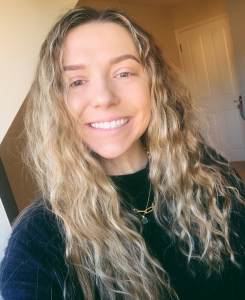Please tell us about your career pathway to date (positions and institutes).
I graduated from Leeds Metropolitan University, with a first-class honours BSc in Physical Education in 2014. Subsequently, I completed a MSc in Sport and Exercise Nutrition at Leeds Beckett University. With an interest in physical activity, exercise and health compound with a passion for helping children, I obtained a role working as a Nutritionist at MoreLife’s residential weight-loss camp. This resulted in a permanent position, which I took in combination with a Part-Time Lecturing and Part-Time Research Officer. Both positions at the University to help enhance my skillset before embarking on a PhD. A year later, I secured a PhD Bursary – also at Leeds Beckett University – focusing on improving children’s cognition and academic performance through acute bouts of physical activity. During my time as a PhD student I have been fortunate enough to continue part-time lecturing and engage in several additional research projects. Resultantly, I have recently secured a full-time Research Officer role within the Active Lifestyles team while finishing my PhD part-time. My current roles focus on creating active schools through whole-school physical activity interventions and on the implementing of physically active learning.
How would you briefly describe your current research/job to someone who is not familiar with your field of study/work? What is your main research interest?
The overarching aim of my research is to help children become more physically active as well as enhancing their academic achievements at school. Whether this is through improved concentration, enhanced learning, or better performance on tests. I am also part of research focusing on the physically active learning which is the integration of learning and moving simultaneously. For example, playing tag outside with rules that require additions, subtractions and multiplication during the game. Our research around physically active learning focusing on (i) understanding if children are more active and/or learn better afterward and (ii) understanding the barriers and facilitators for teachers to deliver these sessions. Understanding the successes and challenges of school-based physical activity interventions also transitions into other areas of my work, where we focus primarily on interviewing stakeholders such as teachers and pupils to understand more about their experiences and opinions.
What are the main barriers you encounter/experience when conducting research, or what information/skills do you lack to conduct high quality research?
For me, one of my biggest challenges during the PhD process has been writing. Dedicating the time to write without distraction can be difficult with myriad tasks at hand, preventing you from fully immersing yourself in the task at hand. Now I am transitioning into a more permanent research positions, I am also transitioning in my methodological approaches. My PhD stemmed from a quantitative perspective. However, through a range of experiences and new research interest my focus is shifting towards a different paradigm; becoming more pragmatic to use the method that best solves the problem at hand. With new thinking, comes the need to upskill in new areas, which for me, has focused on improving my interview skills.
Finally, I am reaching a point were securing research funding will become a priority to further my career pathway. Writing grants still feels quite overwhelming and will require further developments in my skillset.
What could help you as a student/ECR to further develop/grow in your current position?
Based on the challenges I am to face, additional guidance on grant writing and project proposals would be extremely beneficial.
Some of the greatest opportunities I’ve had during my PhD have been to travel to international conferences and have the opportunities to meet experts in the field. More opportunities for early researchers, such as research travel grants would help me continue to network internationally and establish potential avenues for future academic positions.
What do you think will be the next most important development in the nutrition and/or physical activity field?
While not my specific field of research, I personally feel the everchanging technological world to play an important part in the development of nuanced digital based interventions. For example, virtual reality physical activity interventions. As technology continues to immerse itself into our everyday lives, an opportunity may arise for every unique individual.
You can get in touch with Jade Lynne Morris via email at jade.morris@leedsbeckett.ac.uk or follow her on twitter @jadelynnemorris


